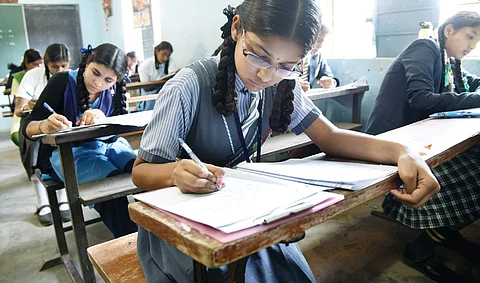

To detain or not to detain? That is the question.
The Rajya Sabha has scrapped the 'No-Detention' policy but a lot of education activists, parents and students are extremely unhappy with this move. The Bihar Equal Education Initiative. an NGO, believes that the government should revoke their decision. The Initiative's main reason for this stand is that students cannot be blamed when they fail since and that there continues to be a lack of good teachers in the system. The following points elaborate their concerns:
1. An IIM Ahmedabad study showed that there is no empirical evidence for the claim that the no-detention policy caused a downward-trend in learning levels. It is therefore not that the children are the problem (and they are targetted by detention), but the schools.
2. The RTE Act did not have zero measurements for learning progress. It mandates Continuous Comprehensive Evaluation (CCE). However, this was never really practised in schools. There was no investment in Cluster Resource Centers, District Instituted of Education and Training (DIETs) or Block Resource Centers to ensure that this policy decision reaches the schools. Instead, if lucky, a handbook was received. A handbook does not change practice. If the government was serious about learning, they would have put more effort into it. CCE is internationally recognized as a suitable standard. But teachers need proper support and monitoring. Dumping a handbook is not enough.
3. If the State schools are in a good shape, then why is the MHRD trying to corner 35,000 Kendriya Vidyalaya seats in three years, 25 times their quota? There is a reason. The reason is that even after a decade, less than 10% of schools fulfil very basic minimum norms. Teachers remain untrained and are provided certificates in masses by online courses. Then people complain that teachers are not well trained. Teacher training costs money and resources. DIETs need improvements. Block and Cluster level academic support is dysfunctional.
4. Instead of spending money on detaining children (which might cost around Rs 1900 crore annually according to Arjun Sanyal, an IIM Ahmedabad alumnus, one should rather improve the system. This includes ensuring timely release of funds, timely provision of textbooks, investments in teacher training and in the State machinery of BEOs, DEOs, CRCCs, BRCs. CSR projects, pilots and NGOs cannot replace the need for an effective implementation apparatus.
5. The expenditure per student in Bihar’s government schools is low. About Rs 8,500 is annually (according to a CRY/CBGA study) spent per child. In the Central schools and model schools, this amount is up to ten times higher.
6. Bihar lacks around 280,000 teachers. If the government was serious, it could train these new teachers well. It could send them as changemakers into schools. It could revive the government school sector.
7. Instead of promising smart boards for schools without electricity, the government should digitalise the administration and speed up processes. Instead of writing reports, nobody will read, teachers should be teaching. And be held responsible for doing so.
